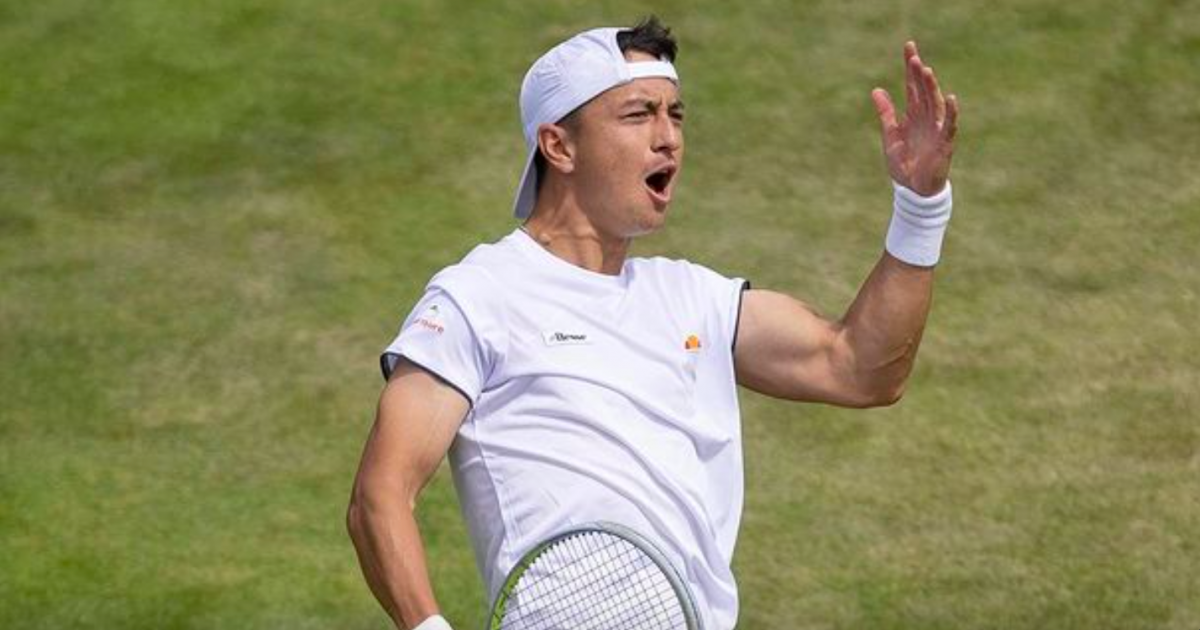Peniston's Been Winning Battles His Whole Life
- British wildcard, Ryan Peniston, ranked 135th in the world, beats Henri Laaksonen, ranked 96th, in a 6-4 6-3 6-2 battle.
- Some childhood cancers might not develop any symptoms, but some signs that could be initially overlooked include flu-like symptoms, a "glow" in the pupil, itchy skin, trouble exercising, decreased appetite, a swollen face, abnormal bleeding, a stomach lump, bone or joint pain or even a myriad of odd symptoms.
- The tennis player overcame rhabdomyosarcoma a rare form of cancer that they found after discovering a lump on his thumb when he was just a baby.
- Treatment advances in recent decades have lead to 84 percent of children with cancer now surviving five years or more, according to the American Cancer Society.
- Peniston achieved victory in just three sets over Laaksonen – next, he’ll face American tennis player Steve Johnson in round two.
Read MoreView this post on Instagram
The match results were 6-4, 6-3, and 6-2 in Peniston’s favor. Not bad for a Wimbledon victory. Insanely impressive for a debut.View this post on Instagram
Peniston, who’s also Britain’s No. 6 ranked, will be competing against American tennis player, Steve Johnson, next.
Ryan’s Cancer Battle
Defeating battles at young ages is a recurring theme for Peniston. Diagnosed with a rare form of a soft tissue related cancer – rhabdomyosarcoma – at the age of just one, it’s said that his parents discovered a strange lump forming on his thumb.
It’s reported that Peniston says overcoming cancer has strengthened his relationships, as well as his game on the court. Going through adversity like that gives him “mental resilience” for a game that’s “very mentally tough,” as he’s stated before.
He went through surgery and two rounds of chemotherapy over a period of 18 months before he was cleared of his disease.
Here at SurvivorNet, we always encourage people to advocate for themselves when it comes to cancer and, more generally, health care. When it comes to children, parents must become advocates.
Childhood Cancer Diagnoses Impact on the Whole Family – Jayne Wexler Shares Her Story
Accusations of being paranoid or pushy when it comes to the health of your child are more than okay to dismiss; it’s better to be safe than sorry. You never know what can lead to a very important diagnosis cancer, or otherwise.
"Every appointment you leave as a patient, there should be a plan for what the doc is going to do for you, and if that doesn't work, what the next plan is," Dr. Zuri Murell, director of the Cedars-Sinai Colorectal Cancer Center, told SurvivorNet in a previous interview. "And I think that that's totally fair. And me as a health professional that's what I do for all of my patients."
Be Pushy, Be Your Own Advocate… Don't Settle
Peniston’s parents could have dismissed their suspicions regarding his thumb, but did the right thing and took action. Figuring out whether you, or your child, has cancer based on possible symptoms is critical. Early detection can help with treatment and outcomes.
Seeking multiple opinions is one way make sure you, or your child, is getting the proper care and attention necessary to overcome the battle. And, not all doctors are in agreement. Recommendations for further testing or treatment options can vary; sometimes it's essential to talk with multiple medical professionals.
Learn more about SurvivorNet’s rigorous medical review process.
Learn more about SurvivorNet's rigorous medical review process.


